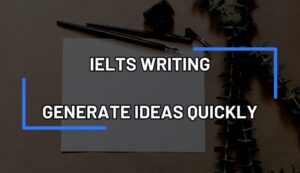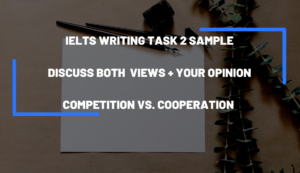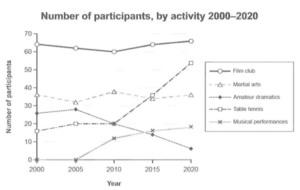At, in, and on are three prepositions that cause a lot of confusion among learners. They can be used to refer to location and time. In this guide, you’ll learn when you should use each.
At
Used to refer to precise locations (like we do on a map):
Examples:
1. Jim is at the bank.
Note: In this sentence, whether Jim is inside the bank or in front of it is not clear. All we know is that he is in or around the bank. If we want to say that he is inside the back, we should say, “He is in the bank.”
2. I’m at home.
Used to refer to holidays without “day”:
Examples:
- I’m going to stay home at Christmas (all Christmas holidays).
- She threw the ball to me= She threw the ball so that I could catch it. We were playing a game.
- She threw the ball at me = She threw the ball toward me so that it hit me because she was mad at me.
Used to refer to the price, rate, level, age, speed, etc:
- The price fluctuated throughout the month but stood at around $60 eventually.
- He is driving the car at 70 mph.
- You become an adult at 18 in most countries.
Good at and bad at:
- I’m good at playing volleyball.
- I am bad at singing.
On
Used to refer to the surface of something:
Examples:
- The book is on the table.
- There is a boat on the water.
- He was tired, so he threw himself on the bed.
Used to say what part of someone’s body is touching the ground or a surface:
Examples:
- He was on his feet.
- She lied down on her back to get some shut eyes.
Used to refer to a single page of a book, magazine, etc:
Examples:
- Her picture is on the cover.
- You can find the information on page 26 of this book.
Used to refer to the programs that are being broadcast by radio or television:
Examples:
- What’s on TV tonight? I hope it’s a horror movie.
- There is a comedy program on the radio.
Examples:
3. The meeting is on June 4th.
4. The match is on August 5th.
Examples:
- I’m on Elm street.
- We need more police on the streets.
- We live on a beautiful island.
- The movie was shot on Fiji Island.
Used with Farms or ranches:
Example:
- He grows many things on his farm.
To or toward:
Examples:
- You can see the shopping mall on the left.
- I parked the car on the opposite side of the town.
Used to refer to large vehicles like trains, buses, planes, ships,…
Examples:
- We got on the bus and arrived at our destination 30 minutes later.
- There are a lot of tourists on the train.
- The plane has taken off, and John is on it.
Used to refer to the type of fuel by which a machine runs
Examples:
- Many cars, these days, run on electricity.
- The truck runs on diesel.
used to refer to the medications that someone takes:
Examples:
- I have been on antibiotics for the past few days.
- This facility helps people who are on drugs but want to quit.
Affecting or relating to someone or something:
Examples:
- He has had a lot of influence on the developing minds under his influence.
- TV shows have a huge impact on young people.
- The government has put a substantial tax on tobacco.
Used to refer to dates (a particular day of the month or a year):
Examples:
- We are going to throw a surprise party for her birthday on July 16th.
- The meeting is on January 16, 2021.
Used when we compare two things:
Examples:
- Sales are 20% up on last year= Sales are 20% higher this year than last year.
- This essay is a definite improvement on your last one.
Used to refer to the Number of a floor in a building:
Examples:
- She lives on the second floor.
- The elevator is stuck on the fifth floor.
As soon as something happened:
Examples:
- What was your reaction on seeing him?
- We turned on the lights and shouted “surprise” on their arrival.
Used to say in what form information is stored:
Examples:
- I put the files on a flash drive.
- I backed up the files on a DVD.
In
Inside 3D places:
Examples:
- He is in his room.
- I put the notebook in my bag.
used to refer to the parts of a day:
Examples:
- The meeting is in the morning.
- We watched the sunset in the evening.
used to refer to months, years, and seasons:
Examples:
- Her birthday is in July.
- We plan on going on a holiday in early June.
- She was born in 2015.
- Bears begin hibernation in winter.
Large places like neighborhoods, cities, or countries:
Examples:
- They used to live in London.
- Many celebrities have houses in Hollywood.
Used to refer to places with boundaries
Examples:
- The animals in this area are protected by the law.
- She has drawn a circle around her and won’t let anyone in that circle.
Used to refer to small vehicles like cars
Example:
- Now that everyone is in the car, we can set off.
Used to say how things are done, usually referring to shapes, colors, sizes, and styles:
Examples:
- This shirt comes in four colors.
- The children stood in a circle.
- The house was built in the modern style.
Within a duration of time:
Examples:
- I can swim 100 meters in 30 seconds.
- I can finish this job in 12 days.
Used to indicate a belief, an opinion, an interest, or a feeling:
Examples:
- He doesn’t believe in ghosts.
- They were interested in the blue car.
- She left the room in anger.
Used to refer to the content inside a book, film, magazine, etc.
Examples:
- There are a few mistakes in your essay.
- You shouldn’t believe whatever you read in books or magazines.
Used to refer to a particular subject, activity, game, sport, etc.:
- She works in education.
- He has been in politics for over a decade.
- How do you defend against taller people in basketball?
- There is a move called Castling in chess, where if the conditions are right, then the King and Rook can switch positions together.
- Many people took part in the protest.
Used to talk about the state or situation of something or someone
- We are in big trouble, guys!
- Pandas are in danger of extinction.
- The car is in good condition.
Used to say how many people or things are involved:
Examples:
- People came in bulks.
- Some came in pairs.
- People came in thousands.
Follow us on YouTube for more tips and resources.







